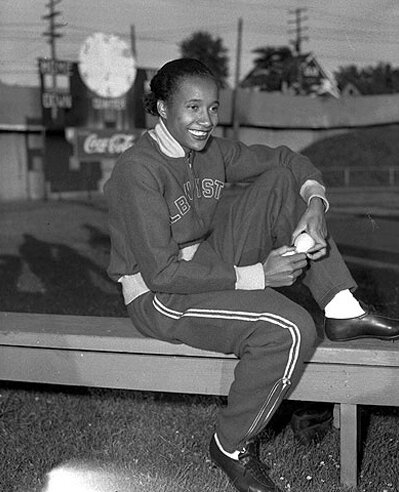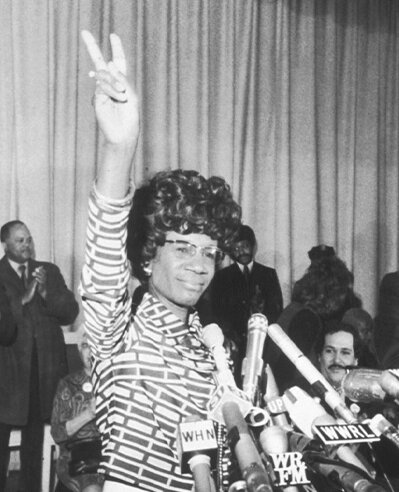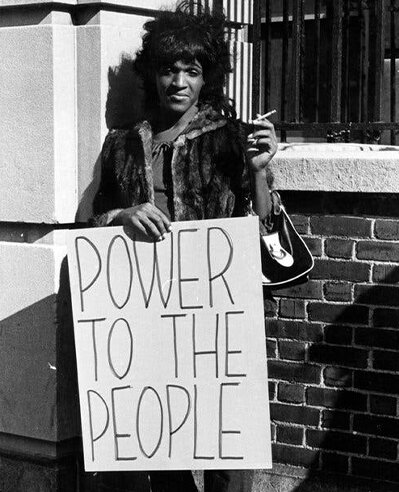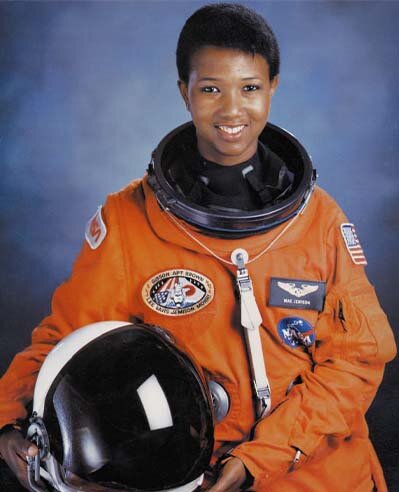Black Women I Wished I Learned About in History Class
Written by Christina Sherpa, WIN Staff
In the United States public school system, anti racist pedagogy is a concept barely put into use. As a person who attended public school for the majority of my life, I have seen and experienced this first hand. The failure to incorporate African American figures, especially women, into the curriculum has left students with little to no knowledge about the actions of empowered women of color throughout history. While we do learn about major historical figures such as Sojourner Truth and Harriet B. Tubman, history largely overlooks women and especially women of color.
While there are countless others who deserve to be taught, here is just a short list of 10 African American women I wished I had learned about in class:
Alice Coachman
NOVEMBER 9, 1923 - JULY 14, 2014
AMERICAN ATHLETE
Alice Coachman was a pioneer in sports for the African American community. Coachman was a track and field star who set national records in high jump while competing barefoot and went on to become the first black woman to win an Olympic medal.
She grew up in the segregated south where she was denied access to train and compete. Despite these hardships, Coachman was able to compete throughout high school and college and eventually was accepted into the 1948 Olympics in London. Alice founded the Alice Coachman Track and Field Foundation where she helped nurture more young athletes and provide assistance to Olympic veterans. She also became the first black woman to endorse an international product after she was signed as a spokesperson for Coca Cola.
Josephine St. Pierre Ruffin
August 31, 1842 - March 13, 1924
American Publisher
Josephine St. Pierre Ruffin is a prominent African-American leader from New England and a pioneer for African American women’s organizations. Her particular interest was the development of African-American women in New England and nationwide. In 1894, she organized the Women’s Era Club, one of the first African-American women’s organizations.
Working with her husband, one of the first Black graduates from Harvard Law School, Ruffin was active in the struggle against slavery and helped recruit Black solders for the Union Army. Ruffin was also a writer for the weekly Black paper, The Boston Courant.
In 1895, enraged by a letter sent from John W. Jacks to Florence Balgarnie (denigrating Black women as prostitutes, liars, and thieves) Ruffin pushed for her to convene The First National Conference of the Colored Women of America in Boston. It was the first conference of all the African American women’s groups in the U.S. A copy of “Jacks Letter” was set to all the groups along with the following invitation to the Conference:
“The reasons why we should confer are so apparent…We need to talk over not only those things which are of vital importance to us as women, but also the things that are of special interest to us as colored women, the training of our children, openings for our boys and girls, how they can be prepared for occupations and occupations may be found or opened to them, what we especially can do in the moral education of the race with which we are identified, our mental elevations and physical development, the home training it is necessary to prepare them to meet [the] peculiar [special; difficult] conditions in which they find themselves, how to make the most of our own…opportunities, these are some of our questions to be discussed.”
Ruffin remained active in the struggle for equal rights and, in 1910, helped form the National Association for the Advancement of Colored People (NAACP).
Jane Bolin
APRIL 11, 1908 - JANUARY 8, 2007
AMERICAN JUDGE
Jane Bolin was a trailblazer in the field of law. She was the first Black woman to graduate from Yale Law School, who then became the country’s first Black female judge in 1939. Bolin worked with Eleanor Roosevelt to support a program that aimed to root out crime among young boys and presided over countless important Family Court cases. She also demonstrated true leadership in ruling against the assignment of probation officers based on race.
Shirley Chisholm
NOVEMBER 30, 1924 - JANUARY 1, 2005
AMERICAN POLITICIAN
Shirley Chisholm became the first African American woman to run and win a seat in Congress, serving as New York’s 12th congressional district representative from 1969 to 1983. In 1972, Chisholm became the first black person to seek a presidential nomination from one of the two major political parties. She said she “ran for the Presidency, despite hopeless odds, to demonstrate the sheer will and refusal to accept the status quo.” Though she failed to win the nomination, her life and legacy have inspired and continue to inspire many black women to run for office.
Ahead of her time, her tombstone epitomizes her spirit and her values, with the choice words of her presidential campaign: “Unbought and Unbossed.”
Marsha P. Johnson
AUGUST 24, 1945 - JULY 6, 1992
AMERICAN GAY LIBERATION ACTIVIST
Marsha P. Johnson was an LGBTQ activist and trans woman who helped lead the Stonewall riots and stand up for transgender women of color who are often victims of violence and abuse. In addition to being a drag performer, Johnson selflessly worked with homeless LGBTQ young people and people with HIV and AIDS.
New York City memorialized Johnson's contributions with a monument in May 2019 in Greenwich Village, in close proximity to the Stonewall Inn. As New York City First, Lady Chirlane McCray, told the New York Times, “The LGBTQ movement has been portrayed very much as a white, gay male movement… this monument counters that trend of whitewashing history.”
Daisy Bates
November 11, 1914- November 4, 1999
American Journalist
Daisy Bates was an American civil rights activist, publisher, journalist, and lecturer. At the age of 3, Daisy's mother was killed by three white men which led her to devote her life to ending racial injustice.
She founded The Arkansas Weekly with her husband, the only black newspaper entirely dedicated to the civil rights movement. She also served as the NAACP President for the Arkansas chapter. Daisy is also known most for her work with the Little Rock Nine. She helped nine African American high schoolers attend an all-white school in Little Rock, Arkansas. After her death in 1999, she was given the Medal of Freedom.
Maggie Lena Walker
July 15, 1864 - December 15, 1934
American Teacher and Businesswoman
Maggie Lena Walker was the first woman to found and preside over a US bank. The daughter of a former slave Maggie went to public school in Virginia and first became a teacher and established a newspaper before founding the St. Luke Penny Savings bank in 1903.
She later served as board chairwoman upon the banks merger with two other Richmond banks. Until 2009 the resulting entity was recognized as the nation's oldest continually African-American-operated bank.
Coretta Scott King
April 27, 1927 - January 30, 2006
American author, activist, and civil rights leader
Coretta Scott King was an American civil rights activist. She, along with her husband Martin Luther King Jr, fought for equal rights for African Americans. After the death of her husband, she continued his legacy and founded the MLK Jr. Center for Nonviolent Social Change more commonly known as King Center. She successfully fought to make MLK’s birthday a national holiday, which was signed by President Ronald Reagan.
Coretta continued her fight to end injustice by supporting LQBTQ rights and fighting against apartheid in South Africa. She stood beside Nelson Mandela as he became the first democratically elected president of South Africa.
Ella Fitzgerald
April 25, 1917 - June 15, 1996
American Jazz Singer
Ella Fitzerald, also known as the Queen of Jazz and First Lady of Song, was an American jazz singer. She started her career in 1934 after she entered and won an amateur contest at Harlem’s Apollo. Despite facing discrimination throughout her career, she went on to become on of the most famous Jazz artists. Lady Ella won 13 Grammy Awards and sold over 40 million albums.
Mae C. Jemision
October 17, 1956 - Present
American engineer, physician, and former NASA astronaut
Mae C. Jemison became the first African American astronaut in 1992. She graduated from Stanford University with a Bachelor of Science in chemical engineering and a Bachelor of Arts in African and African-American studies. After attending Cornell Medical School, she served in the Peace Corps as the area medical officer in Sierra Leone and Liberia.
After deciding to have a career change, Jemison became the first African American woman to be admitted into the NASA astronaut training program in which only 15 out of a pool of 2000 applicants were chosen. Jemison was a pioneer in the STEM field and her work continues with the Jemison Group.










